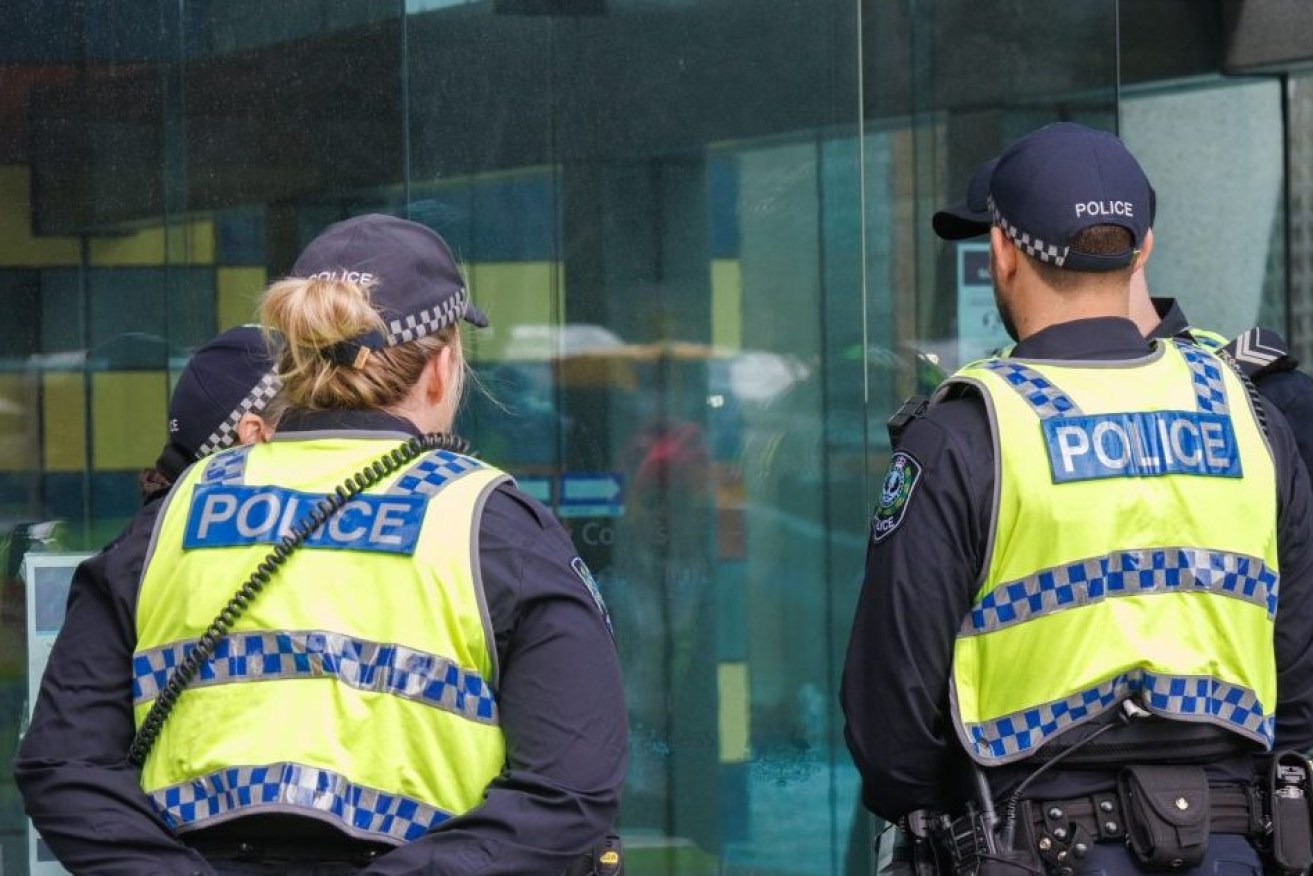Dozens arrested for breaching CBD entry bans
SA Police have arrested and charged 44 people for breaking strict bans on entering Adelaide’s CBD around North Terrace and Rundle Mall – with offenders facing fines of up to $1250 under tough new laws introduced in July.


SA Police have arrested dozens of people breaching bans from Adelaide's CBD. Photo: Tony Lewis/InDaily
Latest data shows 329 people have been ordered to leave a Declared Public Precinct (DPP) in the CBD since controversial laws were introduced by Attorney General Kyam Maher on July 11.
Three people also have been barred from the high-profile zone that takes in some of the city’s most visited cultural, entertainment and shopping boulevards.
“Of the 329 persons ordered to leave the DPP between 11 July and 26 October, 44 were arrested and charged for re-entering or attempting to re-enter the Declared Public Precinct during that period, pursuant to Section 660 of the Summary Offences Act,” a police spokesperson said, confirming that those charged face a maximum penalty of $1250.
The enlarged DPP was declared by the State Government in response to complaints about behaviour in the city, including in front of Parliament House.
At the time, Maher announced that an existing DPP would be extended from Hindley Street to cover an area bordered by Grenfell and Currie Street, Pulteney Street, West Terrace, Montefiore Road, the River Torrens, Victoria Drive, Kintore Avenue and North Terrace, until October this year.
Maher has since extended its operation until April next year, despite a call from the Law Society of South Australia for “evidence to back up” the new laws before an extension decision was made.
The new rules give police the power to search – including using metal detectors – remove and ban people from the declared zone, and anyone banned from the DPP is not to return to the zone for the remainder of that day.
When asked how well the new DPP was operating, SA Assistant Commissioner Scott Duval said the zone was one initiative used by police to reduce crime and increase community safety.
“The additional authorities provided under the DPP assists police to make the city a safe place to live, visit and work,” Duval said.
Police removed 62 people from the DPP in the first week of expanded powers in the city that prompted one homeless services chief to call on the State Government to stop “shifting the problem”.
At the time, a promised new $490,000 Safer Place to Gather site was not operating in the western parklands – but this had since opened in early August to operate in conjunction with the new DPP.
Human Services Minister Nat Cook said an accumulated total of more than 4000 people – or about 30 to 40 people each day – have “accessed” Edwards Park since it opened in early August and it appeared to have helped make the CBD feel safer.
“Many visitors to Edwards Park use the site daily, along with the outreach services provided. The Remote Visitor Team has seen a notable decrease in high-risk and anti-social behaviour in the CBD since Edwards Park was established,” she said.
The site was announced to support the DPP extension and at the time, Police Minister Joe Szakacs said it showed “our government’s commitment and leadership to provide a responsive service to support visitors from remote communities, while also keeping our businesses, workers, residents and tourists feeling welcomed and safe”.
Law Society of SA president James Marsh said it was important those fined “for breaching ‘move-on’ orders” have access to legal support, “given the likelihood that an expiation could cause severe financial hardship, and the complex social issues which contribute to people seeking safe haven in the CBD area”.
He also raised concerns that the society had received no information about the effectiveness of the expanded DPP or “its impact on vulnerable and disadvantaged people who spend prolonged periods in the CBD”.
“The society is concerned about the potential for the regime to affect disproportionately Aboriginal, young and disadvantaged people,” Marsh said.
“The society has asked the Attorney-General’s Department to provide the evidence upon which the decision to expand the regime was based.
“Measures that give extraordinary powers to state authorities that significantly restrict individual rights and liberties must be based on sound evidence. Without the evidence being published, it is difficult to see how the public can have confidence in the credibility of such measures.”




